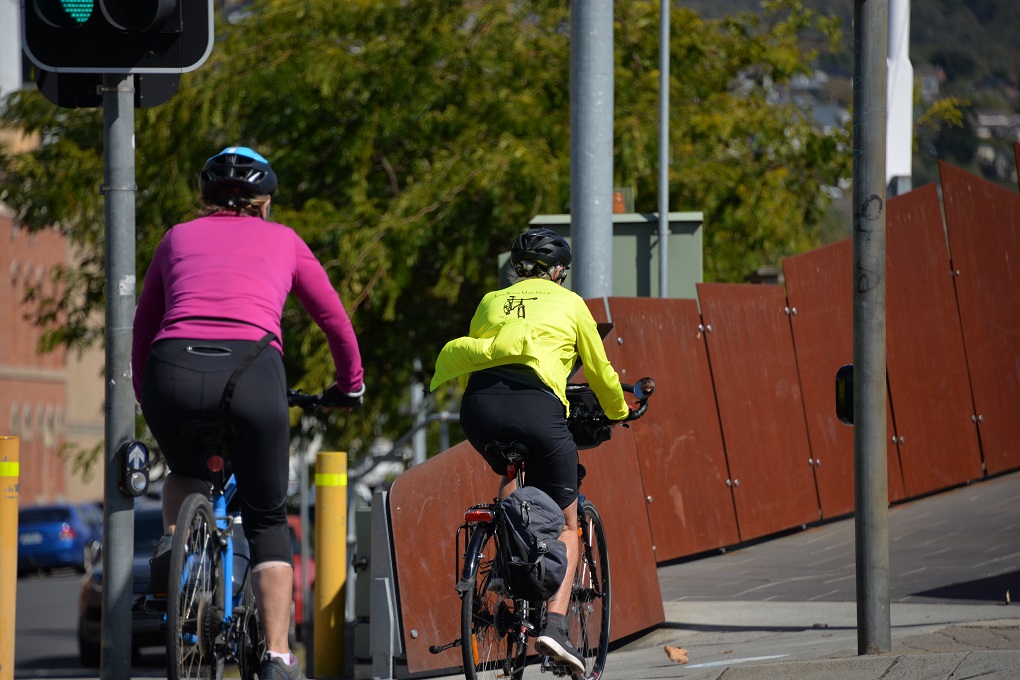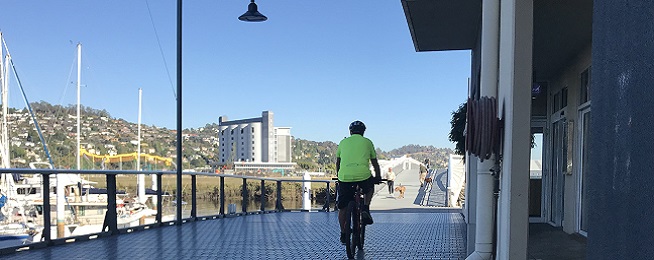Launceston Council has voted to improve its representation of bicycle riders with the formation of a new transport committee dedicated to improving active transport in the municipality.
The council currently has a Pedestrian and Bicycle Committee (which Bicycle Network attends) which operates separately of other transport decisions. The result has been that bicycle riders have often had to battle for the funding scraps left over after other infrastructure has been budgeted for and cycling is left out of the design.
Councillor Alan Harris moved the motion to change the focus of the committee at the 11 June council meeting, as well as committing to separated cycling lanes, lower speed limits and long-term plans to make bike riding easier:
RECOMMENDATION:
That the Council:
- Agree in principle to broadening the Pedestrian and Bike Committee to become a Transport Committee which can provide more of a holistic and integrated approach to our transport planning and prioritisation of works within the Municipal Area;
- Request the Chief Executive Officer to develop a revised Terms of Reference for the committee and present to a future Council meeting; and
- Request this Committee to immediately start planning for the provision of additional pedestrian and cycling infrastructure to prioritise pedestrians and cyclists to enable them to safely move about the community whilst maintaining safe social distancing. This should include, but not be limited to, consideration of the following to enable residents to safely travel from the outer suburbs to the city centre:
- New temporary “on road segregated bicycle lanes”
- New additional “on road painted bike lanes”
- Provision of “missing links” between existing bike paths around the city
- Long term planning of new dedicated off-road bike paths from the outer suburbs to the CBD, initially including:
- St Leonards/Norwood/Relbia
- Rocherlea/Newnham
- Riverside/Legana
- Wider footpaths in shopping zones
- Lower road speed limits in shopping zones
The motion was passed unanimously, with strong support from councillors McKenzie, Dawkins, Finlay, Walker, Soward and Daking.
Mayor Albert van Zetten also strongly supported the proposal, identifying himself as one of those riders who would like to ride more often but are worried about riding on roads. He pointed out that culture change and education of drivers was also needed.
The motion supports the council’s recent climate action pledges under the Cities Power Partnership, which included encouraging cycling through transport planning and design and providing adequate cycle lanes, parking and end-of-trip facilities.

The Tamar Bicycle Users Group supported the motion in a statement, but called for the employment of an active transport officer to oversee all the council’s bike infrastructure and look for opportunities to integrate active transport, increase network connectivity and support transport and cycling events.
Chief Executive Officer Michael Stretton responded by saying that a new staff position – Transport Team Leader – would allow the council to provide a greater level of service to active transport.
Tomorrow Together
The council’s Tomorrow Together public engagement project has also wrapped up its consultation on transport and found that 49% of people who participated would ride a bike more if there were dedicated cycling lanes and paths.
When asked for ideas to make it easier to cycle, after nominating dedicated cycling infrastructure, participants listed:
- a better connected network of cycle paths and lanes
- cycle to work and school programs
- driver education about sharing the road
- secure bike parking and end-of-trip facilities
- lower speed limits
- making helmets optional
- e-bike charging stations.
When asked about street design and what the council should reallocate space to, the majority of participants nominated off-road shared paths, followed closely by more footpaths and more on-road cycling infrastructure.
Tomorrow Together is the council’s public consultation project covering six themes, the Mobile and Accessible City theme was the fourth and results will be used in the development of the council’s transport strategy for the next 20 years.


